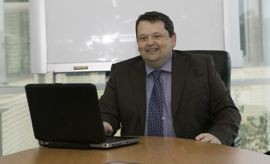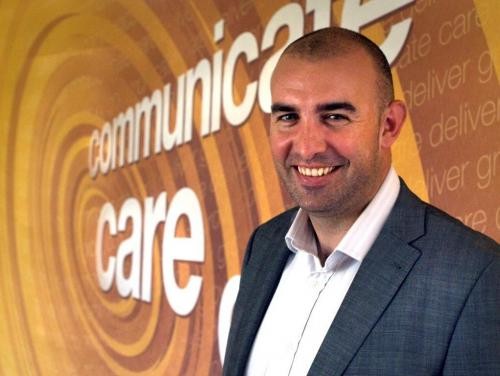 Leading business communications provider, Chess Telecom, has become the latest partner to launch live services based on Content Guru's NGware platform, with the launch of its new offering, Chess Cloud.
Leading business communications provider, Chess Telecom, has become the latest partner to launch live services based on Content Guru's NGware platform, with the launch of its new offering, Chess Cloud.
Award-winning communications provider and established channel presence, Chess Telecom, has made a decisive move with its first cloud-based voice proposition for the UK SME and channel market. Building on the proven technology foundation of Content Guru's NGware platform, Chess Cloud is set to occupy a prominent position in the Chess Telecom product portfolio, complementing the business's existing on-premise and line rental offerings with a wide range of PBX functionality from the cloud.
Central to the Chess Cloud offering is Chess PBX, a suite of features designed to deliver customers the equivalent functionality of an enterprise-grade PBX in the cloud. Standard PBX replacement features of the Chess Cloud proposition include a variety of intelligent routing options and customisable IVR, in addition to one-click disaster recovery for seamless business continuity. Chess PBX users will also have the option to personalise their solutions with a range of value-added products, from cloud-based call recording and storage, to contact centre functionality complete with ACD and skills-based routing.
The decision to position Chess Cloud as a PBX proposition alongside the organisation's existing on-premise offerings was a deliberate one, explains Chess CEO, Dave Pollock, as the business seeks to diversify from its traditional CPE portfolio.
"The PBX market has seen radical change in recent years and channel resellers are having to take a long hard look at the way they do business," Pollock observes. "Though on-premise PBX continues to provide a large volume of our sales, every year we are seeing an increasing number of enquiries about the availability of cloud alternatives. It has become clear to us that the trajectory of the current market is trended towards the software-as-a-service model and for businesses such as ours seeking to pursue an ambitious growth strategy, it is absolutely essential to have a rock solid cloud offering with all the latest features."
In order to take full advantage of the cloud opportunity, Chess Telecom needed to design a unique set of services that would complement its existing product portfolio. These services also needed to be appropriate for Chess's broad and varied existing customer base, ranging from medium-sized enterprises of several hundred seats down to SoHo customers with a single user.
It was this set of circumstances, Pollock continues, that led to Chess Telecom's engagement with Content Guru to base their new range of cloud communications services on the NGware cloud platform:
"One of the most attractive features of NGware, and a major influence in our decision to adopt the platform, was its flexibility. NGware's highly customisable administrator interface gives us the freedom to choose how we manage services for customers, enabling us to adopt the system that best suits each individual business. For our SoHo clients, we are able to take away pain by managing everything end-to-end on their behalf, whilst with larger customers we can enable autonomous responsibility for their internal IT teams. This actually gives them more control than they would have had with an on-premise PBX, and at a much lower internal cost because the interfaces are so easy to use."
In addition to selling Chess Cloud directly to customers as a retail offering, Chess has announced plans to roll out a wholesale version of the product across its extensive network of channel partners. Having soft-launched earlier this summer via a series of events hosted at its Cheshire headquarters in Alderley Edge, the Chess Cloud wholesale proposition has already been adopted by more than 20 reseller partners.
This initial success is expected to gather momentum as Chess continues to promote the new proposition across its distribution chain. The business is currently running a series of workshops and webinars to showcase the Chess Cloud propostion, and is encouraging interested resellers to book their place now.
The expertise, channel connections and national presence that this reseller network brings to the table, recognises John Rees (pictured above), Content Guru Commercial Director, are invaluable assets, not only for Chess, but for the NGware platform as a whole.
"We are delighted to be working with a partner of Chess Telecom's calibre and standing," said Rees of the partnership. "When we set out to create our wholesale proposition for the channel, we wanted to build a delivery model that would enable our partners to take our technology and break into markets that we have never been able to address before."
"Chess Telecom's connections and its intimate knowledge of the reseller market make this a dream partnership for us. We look forward to supporting Chess in what we hope will be a long and fruitful partnership, as the Chess Cloud proposition takes NGware into exciting new territory."

 Leading business communications provider, Chess Telecom, has become the latest partner to launch live services based on Content Guru's NGware platform, with the launch of its new offering, Chess Cloud.
Leading business communications provider, Chess Telecom, has become the latest partner to launch live services based on Content Guru's NGware platform, with the launch of its new offering, Chess Cloud. Total has bolstered its mobile Focus Partner Channel with the appointment of Ben Foulds as Partner Manager. His remit is to build on existing partner relationships and support new partners entering the mobile market.
Total has bolstered its mobile Focus Partner Channel with the appointment of Ben Foulds as Partner Manager. His remit is to build on existing partner relationships and support new partners entering the mobile market.